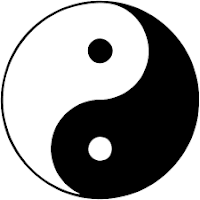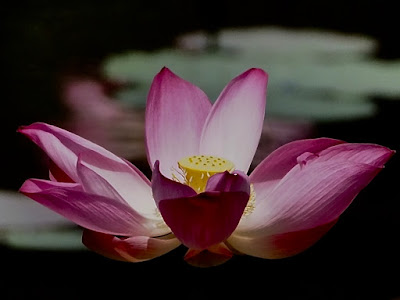 |
| wisdom in traditional chinese medicine |
26. Three Treasures of Mankind
Three treasures of Heaven – sun, moon and earth
Three treasures of mankind – Jing (essence), Qi (life force) and Shen (mind)
25.1. Jing
1. Refers to ‘selecting rice of the best quality’; refers to the most important part in the human body, the essence.
2. Jing is called the ultimate source of life, and includes the brain, marrow, bones, blood, body fluid, sweat. Body fluids are sweat and saliva. All these are manifestations of Jing. These are tangible substances in TCM, summed up as Jing.
3. In TCM, ‘sweat is the fluid of the heart’. Blood and sweat are of the same origin. When you sweat too much the blood gets thicker. The heart Qi weakens in its drive of blood, unable to give impetus to it, thus leading to blood blockage. It is important not to sweat excessively.
4. Aging starts from the legs. If you do not exercise them, stomach and spleen will not function properly.
5. The liver stores blood. If you can’t sleep well, it is related to one’s essence and blood. When you lie down, blood goes to the liver, Yin and Yang are in harmony, thus you can sleep. If there is deficiency of liver blood, failure to restore positive Qi, you are deprived of sleep because Yin and Yang are not in harmony. In TCM chronic insomnia is due to insufficient liver Qi. Yin is a part of body fluid, a part of the essence and blood. During 1.00am to 3.00am liver Qi is most active. People who work night shifts are unable to care for liver, have not enough blood in liver, and may face problem of fatty liver.
6. During summer and winter solstice, Yin and Yang energy alternates. If sleep well in summer, the body will be comfortable for the second half of the year; if sleep well in winter, the body will be comfortable for the first half of the year.
7. Consequences of insufficient Jing: Jing is the source of everything tangible; if insufficient, the complexion, blood, bones, muscles undergo drastic changes.
8. Why osteoporosis? Because of kidneys where Jing is stored. Bone marrow comes from kidney Jing. The kidneys manage bones, produce marrow. Deficiency in kidney Jing results in shortage of marrow, leading to bone loss, growth of spurs.
9. Why dementia in the old or intellectual impairment in children? The brain is a sea of marrow. In TCM to treat dementia, treat the kidneys, reinforce the Jing.
10. Therefore, important to protect kidney Jing by
i. no excessive sexual intercourse
ii. maintaining functioning of spleen and stomach because spleen and stomach are sources of Qi and blood, foundation of production of Jing.
iii. not dieting because you lose nutrition from grains, etc
iv. caring for lungs because lungs are characterized by dryness; lungs dread being heated by fire. For example, in autumn dry air can impair Jing causing dry mouth, parched tongue. Thus, need to sweeten and moisten lungs, relieve cough by taking water chestnuts, pears.
11. Do not drink too much water. Water is Yin, can impair positive Jing, cause edema.
25.2. Qi
1. The character Qi in Taoist text has the character ‘wu’ (nothing) which does not refer to non-entity but to its invisibility. The four dots below refer to a mass of tangible substance, an invisible existence.
2. In TCM ‘People live for a single breath (qi)’. Qi is the life force, Yuan Qi (innate Qi) in TCM. ‘Genuine Qi is endowed by Heaven’ according to Huangdi Neijing.
3. Innate Qi is made up of three parts. The meaning of Heaven is twofold – it refers to parents as well as breath of nature. The third is grain Qi in the grain and water we consume.
4. To preserve innate Qi, there are three things to do – breathe fresh air; consume grains and water for spleen and stomach; preserve kidney Qi from parents.
5. Spleen and stomach are like sons and the heart is mother. The heart pertains to fire by nature, the spleen and stomach to earth.
6. To protect Qi, do not breathe in haze; avoid food too cold or too hard.
7. Overthinking and overworking are not good, leads to deficiency in spleen Qi which leads to undernourishment of the internal organs, failure of the heart and death.
8. In TCM, has stomach Qi will live, without it you perish. Thus, spleen and stomach are most important, can cause impairment of Qi.
9. Qigong is good because it involves movement of blood and Qi versus non-movement like thinking which can be exhausting.
10. TCM does not advocate surgical removal of any body organ because all organs make up the machinery in the body – some functions are evident some hidden; all organs have a role, even tonsils.
25.2. Shen
1. Shen is the force that governs life. Shen’s original meaning is god. The unpredictable Yin and Yang are called Shen in I Ching. Shen in Chinese culture refers to god. Shen in TCM refers to the heart.
2. The heart is the most important organ, one that decides. Shen resides in the heart. If Shen and heart are unsettled, the result is emotional problem. It can affect Qi and Jing.
3. Emotional tranquility is key to Shen cultivation. Peace of mind is prerequisite to Shen cultivation. Genuine Qi is created in tranquility and nothingness.
4. Health maintenance in TCM emphasizes frequent exercise of the brain and body, not the heart. When the heart is unsettled, it affects the five organs, and fire arrives.
5. The most important thing to do is to maintain balance, not to be too happy, not to be too sad.
* Sharing a nugget of vitality, not to be swallowed whole
















